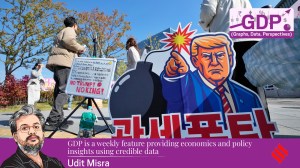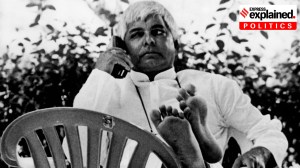Domestic factors to decide RBI moves, says Reddy
Is it time for domestic interest rates to go down? The US Federal Reserve’s interest rate cut was a “relevant input” for the RBI,

Is it time for domestic interest rates to go down? The US Federal Reserve’s interest rate cut was a “relevant input” for the RBI, but domestic factors still outweighed global ones, RBI governor Y V Reddy said.
India was better insulated from any slowdown in US economy compared with other emerging economies, Reddy said in an interview, while adding that he was happy that inflation expectations were benign. “As far as the Indian economy is concerned, while we’re having increasing linkage with the global economy and the global financial markets, we’re essentially a domestic economy-dominated system,” he told the BBC, according to a transcript released before the interview was broadcast.
That meant the Reserve Bank’s major considerations in setting policy related to domestic developments. As India became more integrated with the world, increasing weight was given to global developments, particularly in the US, he said. “So it is a relevant input to the ongoing analysis of the developments,” Reddy said when asked whether local rates would fall after the US rate cut. The US Federal Reserve cut its federal funds target rate by 50 basis points to 4.75 per cent, a larger cut than many in the markets had expected, to shore the economy up against a housing slump and turbulence in financial markets.
The Reserve Bank of India has raised its main short-term lending rate five times since last June to 7.75 per cent, with the last increase coming in March, to contain inflationary pressures and check sharp credit growth. The Sensex rose to a third straight record close on Friday, and the rupee hit a nine-year high of 39.90 per dollar this week after Fed’s cut, driven by India’s higher yields and expectations that calmer financial markets would see investors return to emerging economies.
Reddy said as India was less dependent on the US economy compared to other emerging economies and as it ran only a marginal current account deficit, it would not suffer greatly from a slowdown in the world’s largest economy.
“So overall therefore, I will say yes, there will be some impact, but the impact is likely to be less than most other emerging market economies,” he said. On inflation, Reddy reiterated that the central bank’s medium-term goal was to get it down to 4.0-4.5 per cent, and then eventually to 3 per cent to help the economy integrate with the rest of the world. “We are not worried about inflation. We have to be concerned about the developments on the inflation front, that is our main responsibility. We are happy that the inflation expectations are quite benign now,” he said.
For the fiscal year ending in March 2008, the central bank is aiming to contain inflation at near 5 per cent. The annual wholesale price inflation rate eased to 3.32 per cent in the second week of September, the lowest in nearly five years and sharply down from a peak of 6.69 per cent in January, which was its highest in more than two years. Analysts say record high oil prices could force the government to raise state-set retail prices of diesel and petrol, which would increase the inflation rate.
GOVERNORSPEAK
• India is a domestic economy dominated system
• Fed move relevant input to the ongoing analysis of the developments
• Country less dependent on the US economy
• As India ran only a marginal current account deficit, it would not suffer greatly from US slowdown
•Inflation expectations are quite benign now



- 01
- 02
- 03
- 04
- 05



























